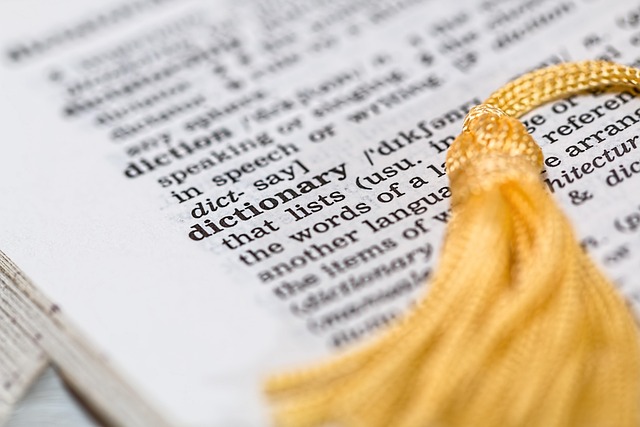The UK cookbook market thrives on diverse culinary content demanding precise translations for global reach. Top services ensure cultural accuracy, master local terminology & techniques, and maintain quality through rigorous QA processes, preserving essence & integrity of authentic UK recipes. Choose providers with culinary expertise for seamless translation & formatting adjustments.
“The art of cooking transcends borders, making the translation of UK cookbooks and culinary guides a vital service for global food enthusiasts. This comprehensive guide explores the seamless process involved, from understanding unique UK culinary terminology to ensuring cultural accuracy. We delve into choosing the right language services provider, technical considerations for recipe translations, and crucial quality assurance checks. By navigating these steps, the translation process becomes an asset, preserving the essence of UK cuisine for diverse audiences worldwide.”
- Understanding UK Cookbook Translation Needs
- Choosing the Right Language Services Provider
- Ensuring Cultural Accuracy in Culinary Guides
- Technical Considerations for Recipe Translations
- Quality Assurance Checks for Seamless Cookbooks
Understanding UK Cookbook Translation Needs

The UK market for cookbooks and culinary guides is vibrant, with a diverse range of publications catering to various cuisines and dietary preferences. When translating these resources, understanding the nuances of British food culture and language is essential. UK cookbook translation services need to grasp the unique requirements of this niche, including local terminology for ingredients, cooking techniques, and kitchen equipment, as well as cultural references specific to British readers.
Furthermore, translation accuracy in cookbooks demands a deep appreciation for culinary traditions and recipes, often passed down through generations. Translators must carefully navigate flavor descriptions, ensuring that the essence of each dish is conveyed effectively while adapting measurements and ingredients to align with local availability and preferences. This meticulous approach guarantees that UK readers receive authentic and engaging culinary guides tailored to their tastes and expectations.
Choosing the Right Language Services Provider

When it comes to translating UK cookbooks and culinary guides, selecting the ideal language services provider is a key step in ensuring a seamless process. Look for a company with deep expertise in the culinary industry, as they’ll understand the nuances of ingredients, cooking techniques, and cultural food preferences. Expert translators who are native speakers or have culinary backgrounds can bring a unique perspective to the table, guaranteeing accurate and flavorful translations that capture the essence of each recipe.
Additionally, consider providers with experience in handling cookbooks, as they’ll be familiar with the specific requirements of this genre, including layout, formatting, and design considerations. A good service will also offer proofreading services to catch any culinary or linguistic errors, ensuring your cookbook maintains its quality and integrity throughout translation.
Ensuring Cultural Accuracy in Culinary Guides

When translating UK cookbooks and culinary guides, cultural accuracy is paramount. The taste of a dish isn’t just determined by its ingredients; it’s also shaped by regional customs and traditions. A professional translation service understands this nuanced difference, ensuring that culinary terms are not just literal translations but accurate representations of the original cuisine’s essence.
For instance, they’d carefully navigate the interpretation of cooking techniques, ingredient substitutions, and even cultural references within recipes. By immersing themselves in the source culture and collaborating with native speakers or chefs, translators can capture the spirit of the original guide, making it a valuable resource for home cooks and professional chefs alike who wish to recreate authentic dishes.
Technical Considerations for Recipe Translations

When translating UK cookbooks and culinary guides, technical considerations are paramount. The process involves more than just word-for-word substitutions; it requires a deep understanding of culinary terminology and cultural nuances. Ingredients, cooking techniques, and measurements often have region-specific variations, necessitating expert knowledge to maintain accuracy and consistency throughout the translation.
For instance, translating a recipe for “baking soda” must account for regional differences in naming conventions and available ingredients. A professional translator familiar with UK culinary guides will recognize equivalent alternatives like “sodium bicarbonate” or “bread soda,” ensuring that the adapted cookbook remains reliable and accessible to readers across different regions.
Quality Assurance Checks for Seamless Cookbooks

When translating UK cookbooks and culinary guides, meticulous Quality Assurance (QA) checks are essential to ensure a seamless final product. These checks involve multiple rounds of reviewing by expert translators and editors who scrutinize every detail, from ingredient lists and cooking instructions to cultural references and culinary terminology. This rigorous process involves cross-checking against the original text, verifying accuracy in translation, and ensuring consistency across recipes and textual elements.
Additionally, QA includes formatting adjustments to maintain the cookbook’s layout and design integrity. This meticulous approach guarantees that the translated cookbook not only conveys accurate recipes but also captures the essence of the original, making it a reliable resource for culinary enthusiasts worldwide.
The seamless translation of UK cookbooks and culinary guides requires a multifaceted approach, from understanding cultural nuances to addressing technical challenges. By carefully choosing a qualified language services provider and implementing rigorous quality assurance checks, you can ensure that translated recipes not only maintain their accuracy but also resonate with diverse audiences worldwide. This process is essential for creating high-quality UK culinary resources globally.
